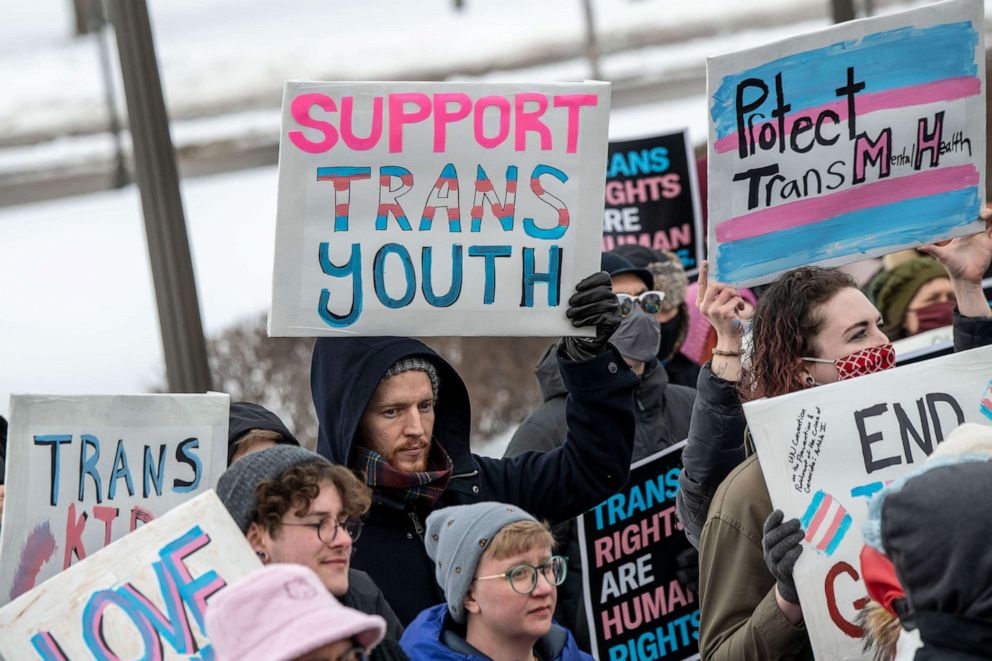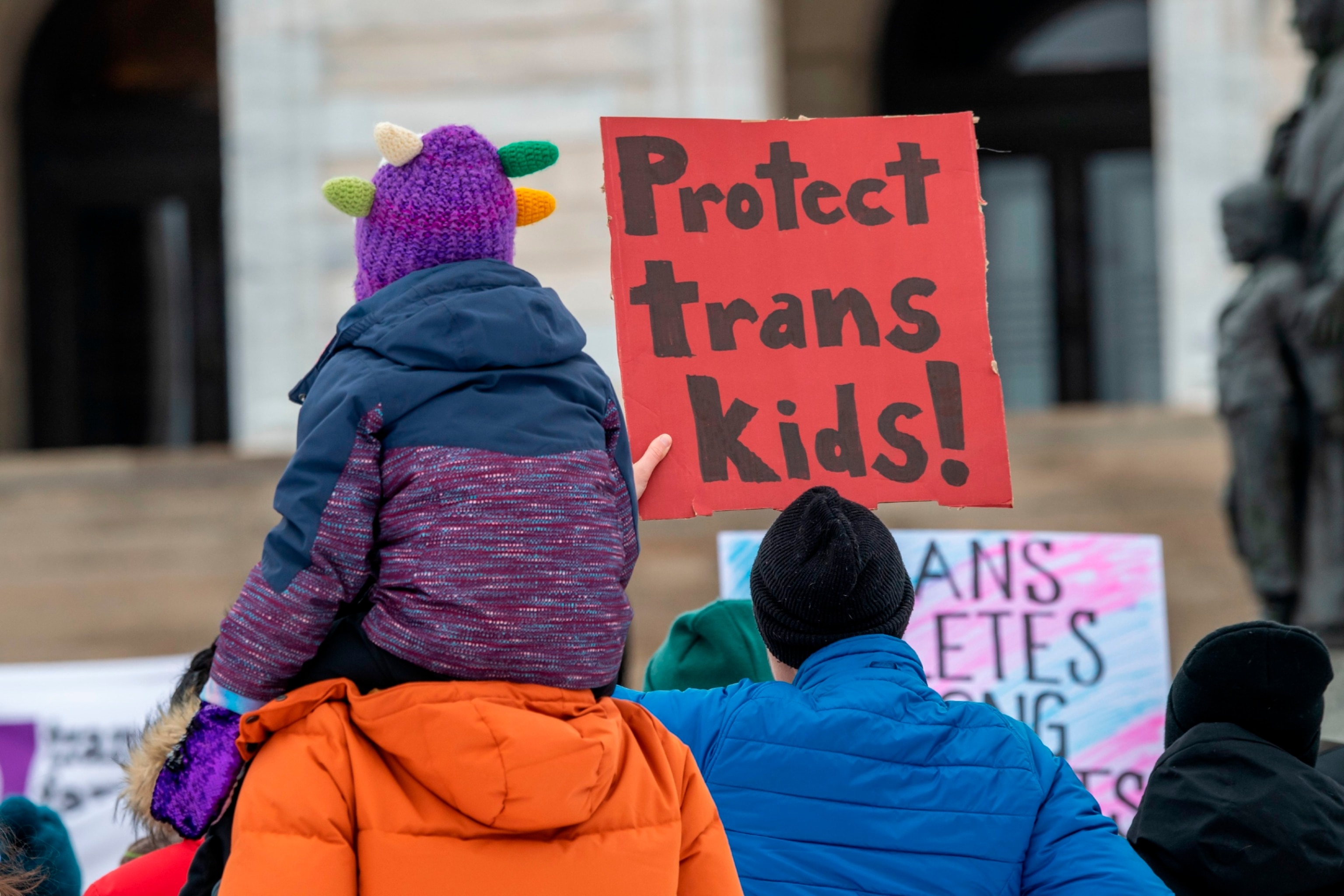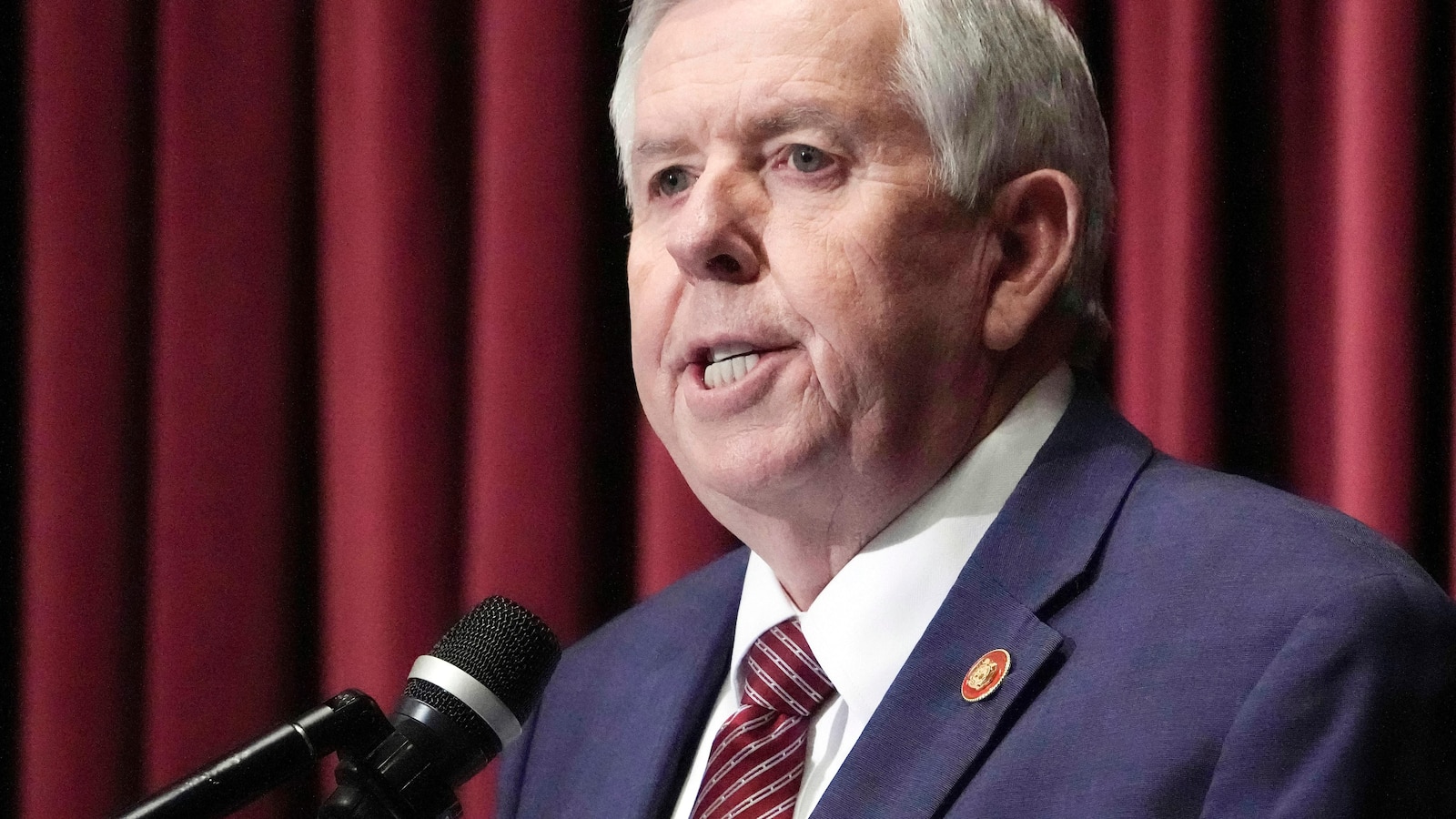A federal judge has temporarily blocked the Biden administration’s Title IX expansion from going into effect in Kentucky, Indiana, Ohio, Tennessee, Virginia and West Virginia.
U.S. District Judge Danny C. Reeves criticized the Department of Education in a decision issued Monday, claiming it “fails to provide a reasoned explanation for departing from its longstanding interpretations regarding the meaning of sex and provided virtually no answers to many of the difficult questions that arose during the public comment phase.”
In April, the finalized federal rules officially added “gender identity” to the list of protections from sex-based discrimination for the first time. Title IX prohibits discrimination based on sex at any institution that receives federal funding.

In this March 6, 2022, file photo, people hold a rally at the capitol to support trans kids in Minnesota, Texas, and around the country, in St. Paul, Minn.
Michael Siluk/UCG/Universal Images Group via Getty Images, FILE
“For more than 50 years, Title IX has promised an equal opportunity to learn and thrive in our nation’s schools free from sex discrimination,” U.S. Secretary of Education Miguel Cardona previously said in a statement on the rule change. “These final regulations build on the legacy of Title IX by clarifying that all our nation’s students can access schools that are safe, welcoming and respect their rights.
Schools could violate Title IX if a transgender person isn’t allowed to use the bathroom aligned with their gender identity or if they are not referred to by their chosen pronoun, according to senior administration officials.
This change directly conflicts with several state laws that ban transgender students from using facilities — like bathrooms or locker rooms — that align with their gender identity and restrict the use of chosen pronouns and names, either by requiring parental permission or by allowing teachers to not use the preferred pronouns and name.
Several states with such laws are behind the lawsuits attempting to hinder the rule change.
Reeves’s ruling comes just a few days after another federal judge temporarily blocked the rules from taking effect several other states.

In this March 6, 2022 file photo, Minneasotans hold a rally at the capitol to support trans kids around the country, in St. Paul, Minn.
Michael Siluk/UCG/Universal Images Group via Getty Images, FILE
State leaders applauded the judge’s decision.
“We fought hard to protect our constitutional separation of powers, which ensures that the people through their elected representatives are the only authority that can make new laws,” said Tennessee Attorney General Jonathan Skrmetti.
The Title IX change from the Biden administration had been welcomed by LGBTQ advocates, students and families who have been met with anti-LGBTQ legislation throughout the year.
The ACLU has recorded more than 500 laws targeting the LGBTQ community in 2023 many of which were centered on school activity.
Several legal organizations, including Lamba Legal, argue that Title IX has long guaranteed that transgender youth “have an equal right to go about their everyday lives at school in peace and with dignity,” said Lambda Legal Senior Counsel Peter Renn in a May statement on its case against Idaho bathroom restrictions
Recently, President Joe Biden’s administration faced a setback in their efforts to overhaul Title IX regulations to better protect LGBTQ students on college campuses. A federal judge issued a temporary block on the rule change, citing concerns over potential harm to religious freedom and free speech rights.
Title IX is a federal law that prohibits discrimination on the basis of sex in education programs or activities that receive federal funding. The law has been instrumental in addressing issues such as sexual harassment, assault, and gender-based discrimination on college campuses. However, critics argue that the law has not adequately protected LGBTQ students, who often face unique challenges and forms of discrimination.
In an effort to address these concerns, the Biden administration proposed changes to Title IX regulations that would explicitly prohibit discrimination based on sexual orientation and gender identity. The changes were welcomed by LGBTQ advocacy groups and civil rights organizations, who argued that they were long overdue and necessary to ensure equal protection for all students.
However, the rule change faced legal challenges from conservative groups and religious organizations, who argued that it infringed on their rights to freedom of religion and speech. These groups raised concerns that the new regulations could force religious schools to violate their beliefs by recognizing and accommodating LGBTQ students.
In response to these concerns, a federal judge issued a temporary block on the rule change, pending further review of the legal arguments. The decision has sparked debate and controversy, with supporters of the LGBTQ protections expressing disappointment and frustration at the delay in implementing much-needed reforms.
Despite the setback, the Biden administration remains committed to advancing LGBTQ rights and protections under Title IX. The administration has vowed to continue fighting for equality and inclusion for all students, regardless of their sexual orientation or gender identity.
In the meantime, advocates for LGBTQ rights are urging the administration to work towards a swift resolution of the legal challenges and to prioritize the needs and safety of LGBTQ students in higher education. They argue that all students deserve to learn and thrive in an environment free from discrimination and harassment, and that Title IX regulations must be updated to reflect this commitment to equality and justice.


